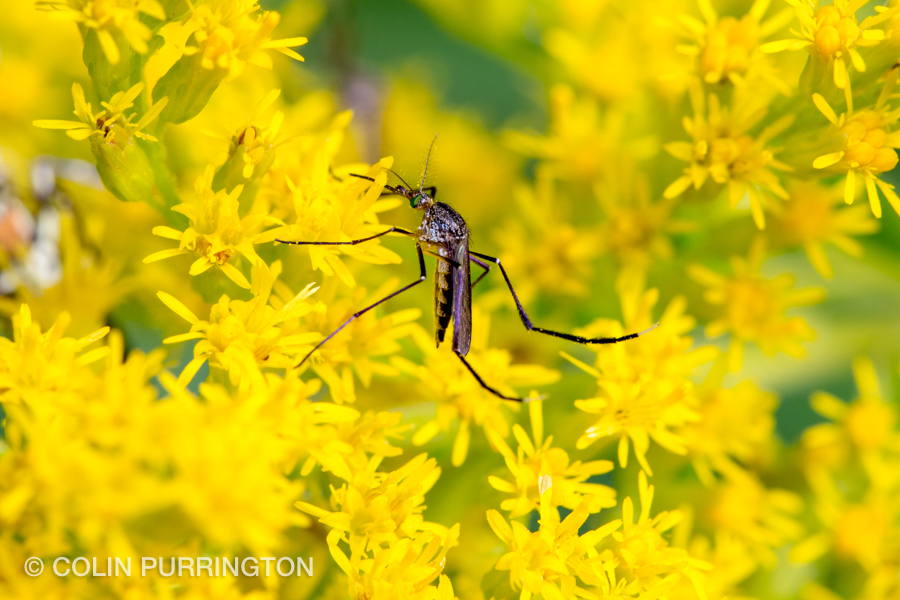Now that everyone wants to kill mosquitoes that transmit Zika virus, can somebody please make a transgenic plant that expresses mosquitocidal Bti (Bacillus thuringiensis subsp. israelensis) toxins? Just stick the Bti gene behind a phloem-specific promoter so that the protein gets pumped into the nectar. Then when males and female mosquitoes drink (and almost all do), they die.

You could then plant acres of the modified plant nearby towns to protect people from Zika (and anything else transmitted by mosquitoes). The beauty of this method is that you could reduce populations of mosquitoes from an area without spraying, and do so for generations if you modified nectar-producing perennials. I know it’s trendy to dislike GMOs (like vaccines), but I think many people would support them under these circumstances.
And yes, apparently Bti toxins can kill adult mosquitoes (including Aedes aegypti), not just larvae. Klowden and Bulla 1984 demonstrated it, for example. And yes, Aedes aegypti drinks nectar (and probably fruit juice).
Of course, even if somebody had the incentive to make such a plant, it could take a decade to wade through the red tape involved in getting non-regulated status from governments. So if you want to do something today, leave out containers of sugar water (10%) that is laced with Bti (e.g., Mosquito Dunks, which you can buy online or at hardware stores). Maybe add something floral to attract them, too. (A review of olfactory cues suggests that imitation cherry and apple can work. If you don’t have those sitting around, I’d wager a few drops of jasmine flavoring or rose water would work, and those are easily found at local stores.) Even if the Bti doesn’t immediately kill the adult, adults sucking up a big sugar meal can transfer the bacteria to water where they lay eggs, and thus eventually cause the death of any larvae that develop. Note that bees and ants might get interested in your sugar water, but the Bti is completely harmless to them.
And if you don’t want to use Bti, there are plenty of articles on using sugar baits laced with insecticides (e.g., Qualis et al. 2013, Junilla et al. 2015). They really can work: mosquitoes absolutely love sugar and will drink up poisons in the process. These are great if you don’t want to use crop dusters to destroy all insects in the area.
If you have kids and want to entertain them, add food dyes to the sugar bait and then challenge them to find mosquitoes with bellies full of sugar water. For older kids that might be amused by actual science, use two dyes to test attractiveness of two different volatiles (or different sugars). It’s probably rare to recapture one right after a nectar meal, but when distended they reveal gut contents nicely.
FYI, white-footed woods mosquito (Psorophora ferox) doesn’t transmit Zika, but illustrates to the unbelieving that mosquitoes do drink nectar.
